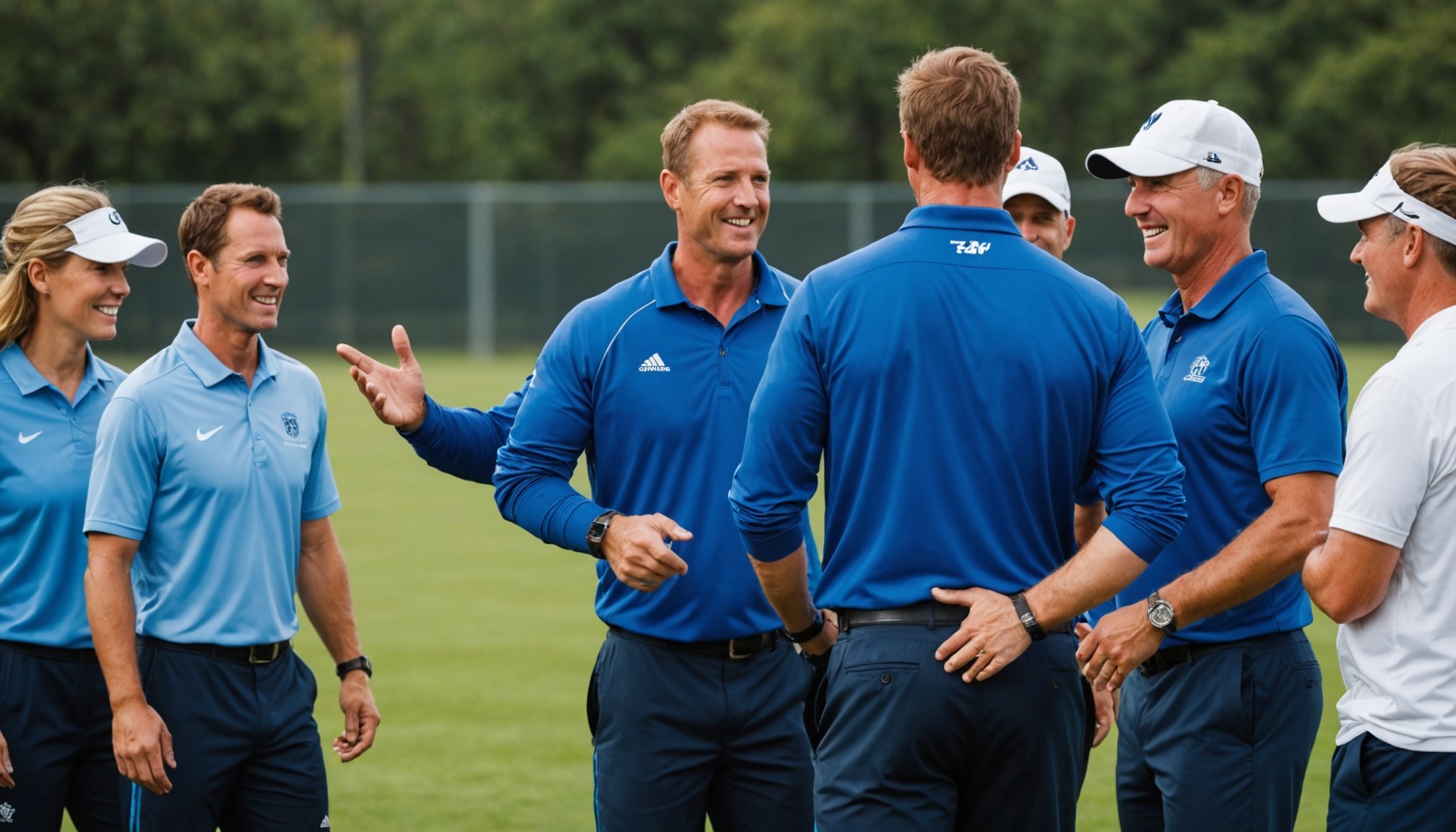In the high-energy world of football, achieving a balance between competitiveness and camaraderie isn’t merely a desire—it’s a necessity. As coaches, you are the architects of a team‘s culture, shaping an environment where players can thrive. Your influence can mold a team that not only seeks victory on the field but also cherishes the bonds of friendship and mutual support. This article delves into the pivotal practices and strategies that can help establish a positive team culture, driving both success and relational harmony.
Understanding the Foundations of Team Culture
Every successful team is anchored in a well-defined culture that reflects its core values and goals. As coaches, your role is to define these values, ensuring they resonate with both the players and the members of your organization. Team culture is the invisible force that binds the group together, inspiring each individual to contribute their best efforts.
Also read : What role does sleep play in an athlete’s recovery and overall performance?
A positive team culture is built on trust, mutual respect, and shared vision. It embodies the principles of collaboration and communication, fostering an environment where every player feels valued and driven. By nurturing these elements, you create a culture that promotes both performance and personal growth.
To instill such a culture, consider involving your team in the process. Engage your players in discussions about their values and expectations. This collaborative approach encourages ownership and commitment, making it easier for everyone to align with the team’s mission. Reflect on your coaching style, and strive for transparency and authenticity—these are the building blocks of a productive and harmonious team environment.
Topic to read : What are the most effective strategies for training endurance in long-distance runners?
Fostering Effective Communication and Collaboration
At the core of any thriving team lies the ability to communicate effectively and work together seamlessly. As coaches, it falls upon you to instill these crucial skills within your team. Clear and open communication channels prevent misunderstandings and ensure everyone is on the same page, fostering trust and unity.
To enhance communication, establish regular feedback sessions where players and coaches can share insights and perspectives. Encourage players to express their thoughts and ideas, creating an atmosphere where every voice matters. This practice not only improves team dynamics but also boosts morale, as players feel heard and appreciated.
Collaboration thrives in an environment where support is prevalent among team members. Organize group activities that promote teamwork, such as strategic planning sessions or team-building exercises. These interactions help develop a sense of camaraderie and mutual reliance, essential for achieving team goals.
In the world of football, where split-second decisions can determine the outcome of a match, seamless collaboration and communication are your team’s secret weapons. By prioritizing these elements, you set the stage for success both on and off the field.
Creating a Supportive and Positive Environment
A positive environment is the fertile ground where teams flourish. As coaches, the environment you create can significantly impact your team’s morale and performance. To cultivate positivity, focus on support and encouragement, recognizing that every individual plays a vital role in the team’s success.
Begin by celebrating achievements, no matter how small. Recognizing individual and team accomplishments fosters a sense of pride and motivation among players. This positive reinforcement boosts confidence and encourages players to push their limits.
Additionally, create a safe space for players to learn from failures. Mistakes are inevitable, but they are also opportunities for growth. As coaches, provide constructive feedback and support, emphasizing that setbacks are stepping stones to improvement. This approach promotes resilience and a growth mindset within your team.
Encourage players to support one another, building a network of encouragement and camaraderie. When team members uplift each other, it strengthens the overall team dynamic, creating an environment where everyone feels empowered to excel.
Balancing Individual Goals with Team Success
While team goals are paramount, acknowledging and nurturing the aspirations of each individual is essential for a harmonious and successful team. Coaches play a crucial role in finding this balance, ensuring that individual ambitions align with collective objectives.
Begin by understanding the personal goals and motivations of your players. Conduct one-on-one sessions to discuss their ambitions and how they can contribute to the team’s success. By valuing their unique skills and perspectives, you create an environment where players feel respected and motivated.
Develop personalized training plans that address the strengths and areas for improvement of each player. This tailored approach not only enhances individual performance but also contributes to the overall team‘s success. When players feel that their personal growth is valued, they are more likely to engage wholeheartedly in team efforts.
Fostering a balance between individual and team goals strengthens the team‘s competitive edge. By aligning these objectives, you create a cohesive unit that works together towards shared success.
Creating a positive team culture that fosters both competitiveness and camaraderie is a multifaceted endeavor. As coaches, you wield the influence to shape an environment where team members feel valued, driven, and united. By emphasizing effective communication, support, and a balance between individual and team goals, your team will be well-equipped to achieve success on the field and beyond. Remember, a well-cultivated team culture is more than a formula; it is the art of merging passion with purpose, creating a legacy of excellence for the team and its members. Football offers endless opportunities for growth and achievement—be the leaders who guide your team to greatness.











